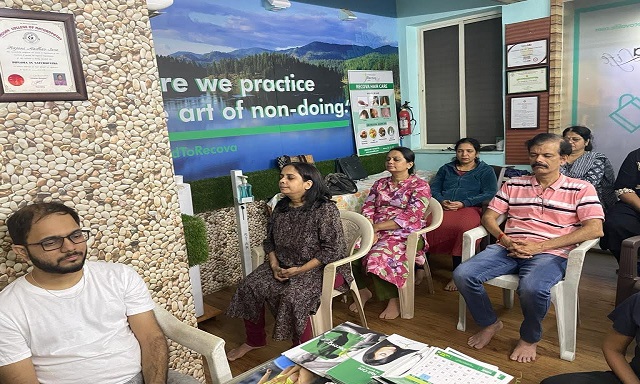
A mindfulness meditation workshop is a structured event designed to introduce participants to the practice of mindfulness meditation and provide guidance on incorporating mindfulness into daily life. These workshops typically cover various aspects of mindfulness, including its benefits, techniques, and practical applications for managing stress, improving focus, and enhancing overall well-being.
Here's an overview of what you might expect at a mindfulness meditation workshop:
Introduction to Mindfulness: The workshop may begin with an overview of mindfulness, its origins, and its relevance in today's fast-paced world. Participants will learn about the basic principles of mindfulness, including present-moment awareness, non-judgment, acceptance, and compassion.
Benefits of Mindfulness: Workshop sessions may highlight the numerous benefits of mindfulness meditation for mental, emotional, and physical health. This could include reduced stress, anxiety, depression, improved mood, concentration, memory, and immune function, as well as enhanced resilience and overall well-being.
Mindfulness Meditation Techniques: Participants will be introduced to various mindfulness meditation techniques, such as focused attention (e.g., mindfulness of breath, body scan) and open awareness (e.g., mindfulness of thoughts, emotions, sensations). Guided meditation sessions may be led by an experienced instructor to help participants practice these techniques in a supportive environment.
Practical Applications: The workshop will explore how mindfulness can be applied to daily life to cultivate greater awareness, presence, and resilience in the face of life's challenges. Participants may learn strategies for integrating mindfulness into everyday activities, such as eating, walking, working, and communicating.
Stress Reduction and Relaxation: Mindfulness meditation is widely recognized for its stress-reducing and relaxation benefits. Workshop sessions may focus on techniques for managing stress, calming the mind, and promoting relaxation through mindfulness practices. Participants may learn how to use mindfulness to respond more skillfully to stressors and cultivate a greater sense of peace and equanimity.
Mindful Movement and Yoga: Some mindfulness meditation workshops may incorporate mindful movement practices, such as gentle yoga, tai chi, or qigong, to complement seated meditation and promote embodied awareness. These practices can help participants connect more deeply with their bodies and cultivate mindfulness in motion.
Group Discussions and Sharing: Workshops often include opportunities for group discussions, sharing experiences, and asking questions about mindfulness practice. Participants may have the chance to reflect on their insights, challenges, and progress with mindfulness meditation in a supportive and non-judgmental atmosphere.
Resources and Continued Practice: The workshop may provide resources and recommendations for further exploration and practice of mindfulness meditation, including books, websites, apps, and local meditation groups. Participants may receive guidance on establishing a regular meditation practice and overcoming common obstacles.
Overall, a mindfulness meditation workshop offers a valuable opportunity for individuals to learn, experience, and deepen their understanding of mindfulness meditation in a supportive and interactive setting. By cultivating mindfulness skills and techniques, participants can develop greater resilience, well-being, and inner peace in their lives.


